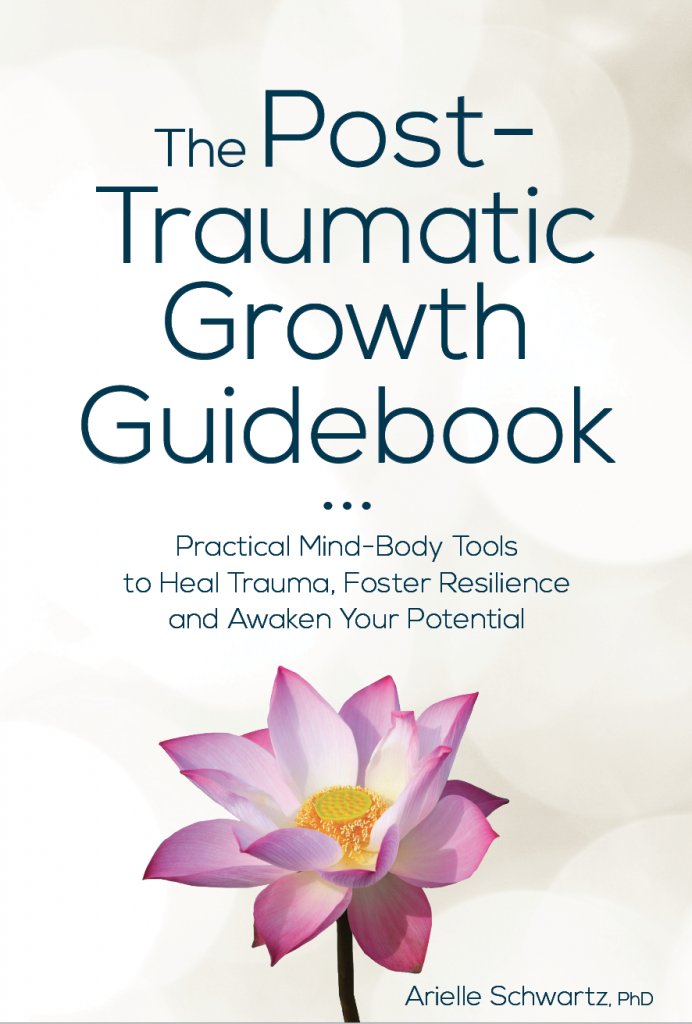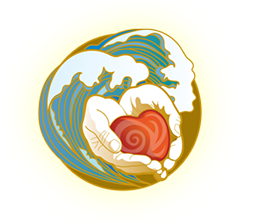Practical Mind-Body Tools to Heal Trauma, Foster Resilience, and Awaken your Potential

Within the pages of The Post-Traumatic Growth Guidebook, you will be guided through 60 practices that illuminate a path to trauma recovery with effective, research based strategies that facilitate resilience and enhance post-traumatic growth. Initially, you will find practices that encourage you to build resources that help you feel grounded, safe, and calm. Once you feel ready, you can begin to explore the practices that focus on releasing the painful impact of losses or traumatic events. You will also find practices that guide you to move beyond the pain of your past by helping you discover a sense of meaning and purpose to your life. You become the alchemist who is capable of turning the lead of difficult life experiences into the gold of self-awareness.
Through the lens of resilience and post-traumatic growth, I invite you to see yourself as the hero or heroine of your own life journey.
Resilience is defined as an ability to flexibly adapt to challenging, adverse, or traumatic life events. This ability to “bounce back” from traumatic events is deeply connected to having the opportunity to work through difficult life experiences. Resilience is not a trait that you either have or do not have; it is a set of strategies that can be learned and practiced.
Resilience is both a process and an outcome that involves practices help you to build a sense of strength and self-confidence. The deep, inner work of healing from trauma eventually allows you to emerge back into the world with your gifts—your unique contributions to the world. You might feel a yearning or longing to fulfill your potential by expressing more of your heart, sharing the knowledge you have gained, and bringing your gifts out to the world.
“Within this book, you will be guided to explore the intersection between your personal transformation and your relationships within family, community, and the planet. This allows your growth and wisdom to serve the wellbeing of others.”
-Dr. Arielle Schwartz
Resilience as a Process

As a process, resilience involves engaging in behaviors that support your wellbeing each and every day. For example, you might go to therapy, learn to meditate, write in a journal, take daily walks in nature, or develop a creative practice. You have an opportunity to realize that feeling and expressing painful emotions is part of a path of self-discovery.
Being resilient does not mean that you won’t experience difficulty. Rather, it means that you can cultivate the skills needed to respond effectively to difficult experiences. You learn to break down overwhelming experiences into smaller, more accessible chunks, which allows you to gradually process painful events. You learn to attend to difficult life events of your past without allowing your history to define you. In this way, you expand your lens to focus on possibilities instead of just problems.
Post-Traumatic Growth

As an outcome, resilience involves experiencing yourself as capable of handling life’s challenges and the choices you’ve made that determine the outcome of your life. You are able to look at your most difficult events and say, “This happened to me—and it is over now.”
Turning toward pain builds character. You have an opportunity to realize that you are stronger than you previously believed; which facilitates post-traumatic growth. As you feel stronger, you are more likely to see yourself as able to bring your gifts and contributions to the world. In turn, you are more likely to accept yourself as you are, have an increased appreciation of life, develop new interests or passions, and discover a new spiritual framework for your life.
Post-Traumatic Growth is a reminder that just as the phoenix rises from the ashes, you have the capacity to rise again.
Realistic Optimism

Resilience is not the same as optimism. In fact, being overly focused on positivity and happiness has its drawbacks. Sometimes, trying to stay positive results in overriding your authentic feelings and leave you feeling ashamed about the very symptoms that require compassionate care and attention.
Rather, resilience is grounded in realistic optimism; which involves maintaining a positive outlook on life while simultaneously acknowledging the challenges that will occur along the way. Too much realism can lead to skepticism or negativity, which can squash your dreams and hinder your ability to move forward. Similarly, too much optimism can result in fantasy or idealism, which can cause you to turn a blind eye to actual barriers that are present in your life.
In contrast, realistic optimism allows you to have your dreams while also setting attainable goals about how to achieve them. From here, you are better able to acknowledge any potential barriers that might get in the way without become immobilized. Having a hopeful perspective is invaluable in trauma recovery, and realistic optimism will help you take the necessary steps to walk the healing path.
Build your Resilience

You can foster resilience by focusing your attention to that which supports your physical, mental, emotional, social, and spiritual wellbeing. You can build physical resilience by getting enough exercise, eating a healthy diet, and attending to the impact that traumatic life events have had on your body. You can build mental resilience by adopting a mindset that recognizes your capacity to grow, even through challenges. You can build emotional resilience by processing traumatic events in therapy and through personal journaling. You can build social resilience by staying connected to other people rather than isolating. You can build spiritual resilience by attending to a deeper sense of personal meaning and purpose.
Most importantly, you can support your resilience with the belief that your choices and behaviors make a difference in the outcome of your life. This gives you the confidence that you are in charge of actively creating opportunities that allow you to overcome barriers in your life.
Giving your Gifts

The deep, inner work of healing from trauma eventually allows you to emerge back into the world with your gifts. Post-traumatic growth provides an opportunity to shift your focus away from yourself by exploring how you might give back to others and the world. We become more human when we focus on loving another person or serving a cause that is greater than ourselves.
Though this experience, you might experience yourself in the flow of life. Flow can be thought of as an effortless engagement with your environment in which awareness and actions are fully integrated. Flow allows you to lose a sense of self and time. It is a feeling of rightness and of being fully awake. You can imagine yourself like water that is flowing downhill, following the path of least resistance. In this state, you are not held back by self-consciousness or self-criticism. Rather, your life is enriched with a sense of meaning.
This experience of flow is available to all of us; regardless of the challenges we have faced in our past or the circumstances in the present. Flow can be found in any activity in which we have the potential to achieve control and mastery over the mind, including doing dishes, folding the laundry, playing sports, or creating art, poetry, and music. However, flow is optimized when we overcome obstacles, speak out for what we believe, or find a previously undiscovered courage to rise up against all odds.
Own Your Story

One of the most powerful components of a transformational journey into post-traumatic growth is that it allows you to take personal responsibility for the narrative that defines you and your life. By consciously attending to the voice or narrator of your personal story, you can discover whether your story is one of hope and optimism, or if it is a pessimistic story full of disappointment and resignation. You get to write the script. You are allowed to revise your story until you arrive at a satisfactory conclusion, one that supports your growth after trauma. This does not mean that you can change what happened in your past. However, you can work through the pain of your past until you find resolution in the here and now.
The Invitation

A healing journey is not linear. You might take a circuitous path, forging new trails as you loop around landmarks until they become familiar. While you may initially endeavor to find the end, you might discover that a healing journey is vast and unlimited. Nonetheless, you must start where you are. For, each step of this journey is accomplished by focusing on the present moment, bringing awareness to your sensations, attending to your inner experience, and remembering to breathe. With that in mind, we begin. You have received the invitation. Are you ready to embark upon your hero’s journey?
Read the Book

This blog offers a preview of The Post Traumatic Growth Guidebook: Practical Mind-Body Tools to Heal Trauma, Foster Resilience, and Awaken your Potential. Within the pages of this book, you will find an invitation to see yourself as the hero or heroine of your own life journey. A hero’s journey involves walking into the darkness on a quest for wholeness. This interactive format calls for journaling and self-reflection, with practices that guide you beyond the pain of your past and help you discover a sense of meaning and purpose in your life. Successful navigation of a hero’s journey provides opportunities to discover that you are more powerful than you had previously realized.

